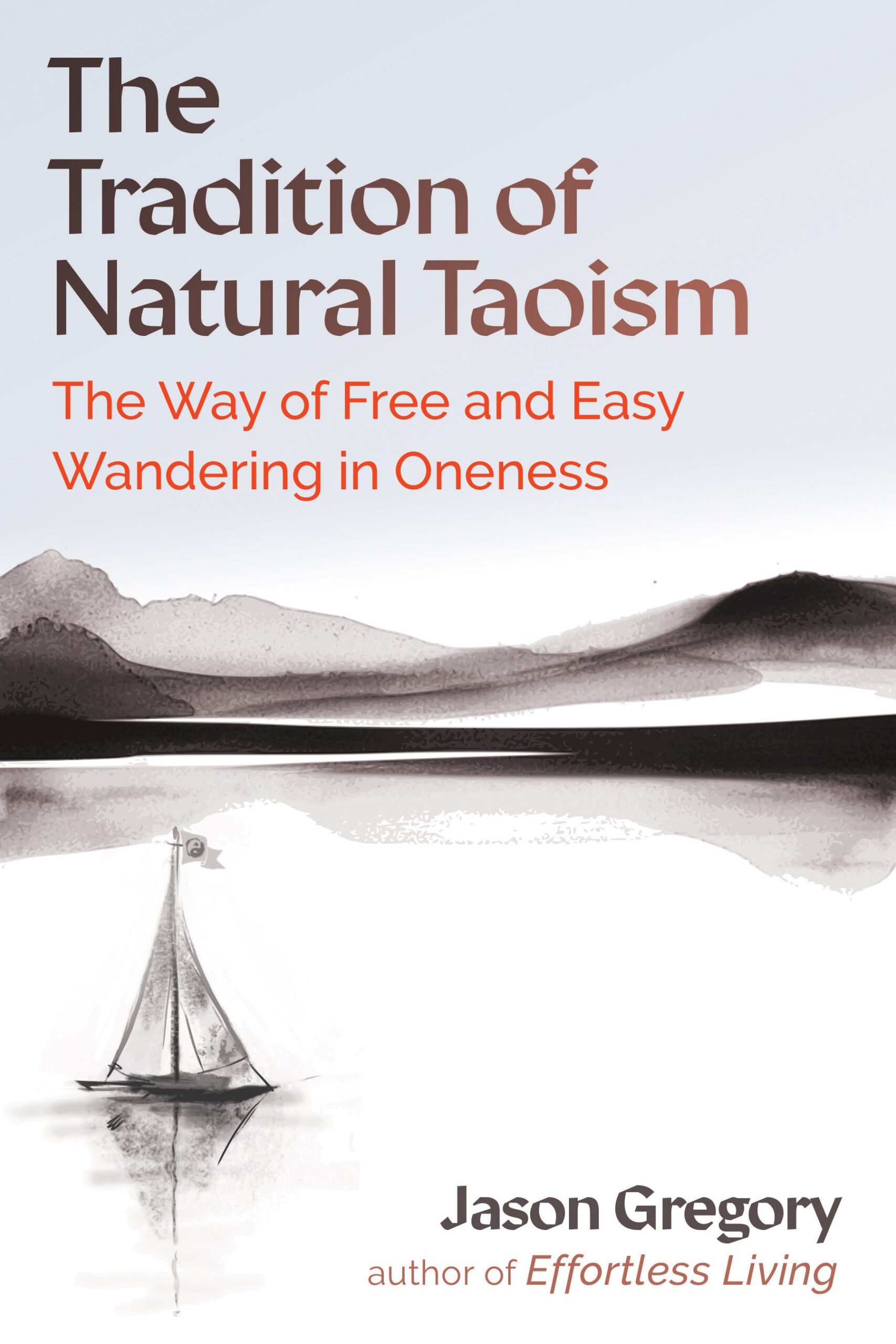The Negative Impact of Observing Thoughts in Meditation and Self-Inquiry
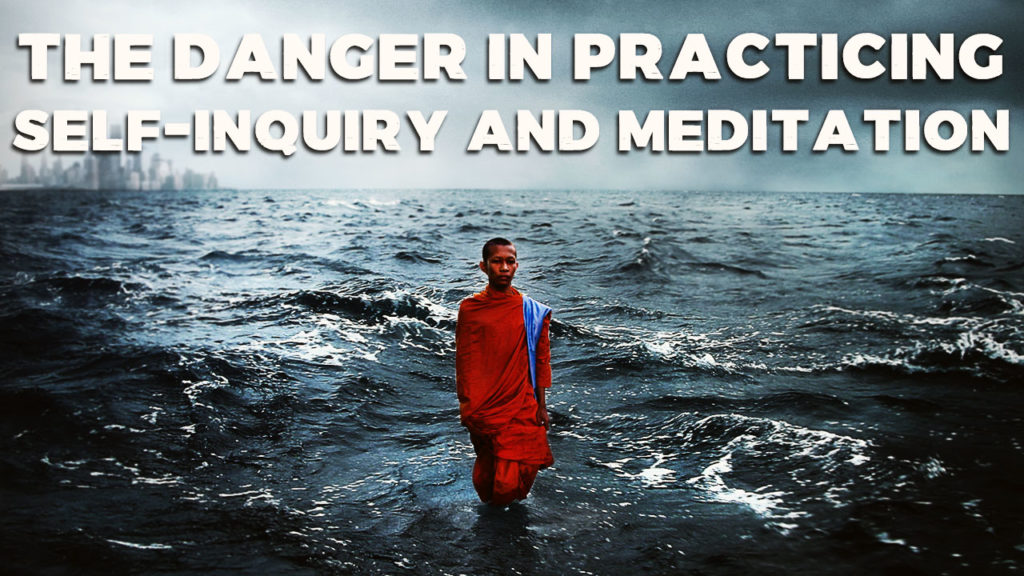
In this episode of Enlightenment Today, I will explain how observing our thoughts in meditation and self-inquiry can have a negative impact on our life if we don’t have the correct knowledge to practice correctly. A common habit in meditation and self-inquiry is people begin to demonize thoughts, creating a divide within themselves based on the hunt for the perceived enemy of the ego, which causes an artificial split within the mind. This can lead to numerous mental health issues. A lot of this bad meditation habit comes down to how we project our indoctrinated beliefs of right and wrong onto thoughts that naturally arise during practice. This is against the nature of meditation and self-inquiry. NOTE: This site directs people to Amazon and is an Amazon Associate member. As an Amazon Associate I earn from qualifying purchases, at no additional cost to you. The pages on this website may contain affiliate links, which means I may receive a commission if you click a link and purchase something that I have recommended. This goes a tiny way towards defraying the costs of maintaining this site.
Taoism’s Criticism of Confucianism & the Modern World: Why Social Roles and Sincerity are a Problem
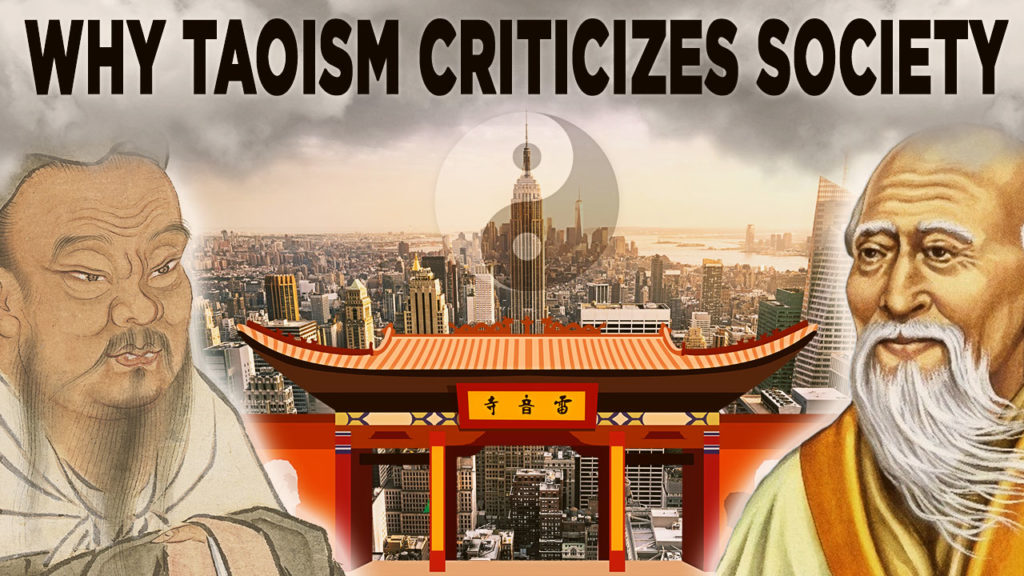
In this episode of Enlightenment Today, I will explain an important element within Taoism that many people often don’t know about due to a lack of knowledge of what the verses actually mean that arise from incorrect translations of the Tao Te Ching. Taoism in its essence is a critique of Confucianism and this also relates to our modern world, as Taoism is not truly isolated to one period of time, but can critique any civilization throughout time. Nevertheless, its critique of the teachings of Confucius is solely focused on the inherit problems with social roles and sincerity that ultimately lead to falsity, hypocrisy, and many forms of psychopathy. NOTE: This site directs people to Amazon and is an Amazon Associate member. As an Amazon Associate I earn from qualifying purchases, at no additional cost to you. The pages on this website may contain affiliate links, which means I may receive a commission if you click a link and purchase something that I have recommended. This goes a tiny way towards defraying the costs of maintaining this site.
Effortless Action: The Art of Spontaneity (Taoist Documentary)
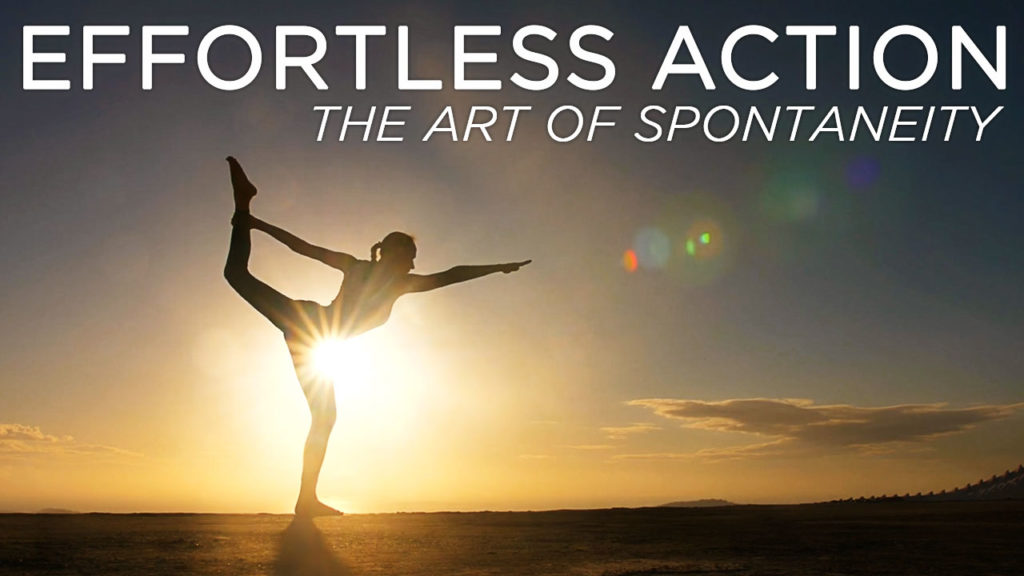
Effortless Action: The Art of Spontaneity is the sequel to my documentary The Art of Effortless Living. This documentary explores the spontaneous nature of the Taoist wisdom of wu-wei as explained by the great sages Lao-tzu and Chuang-tzu. Wu-wei is primarily thought of as non-doing, but there is another component of wu-wei related to effortless action, a state of intelligent spontaneity, where one is effortless in every moment of life. This state of mind is commonly known as “being in the zone,” except the idea of “you” doing it and achieving something has vanished and been replaced by an embodied cognitive state akin to a skilled craftsman, minus the ego. Taoism explains that this ability to be in the zone is actually our natural state of mind. Integrating the wisdom of the ancient sages with modern science, Effortless Action explains how world-class artists and athletes reach peak performance—and how you, too, can harness wu-wei to make your actions effortless, enjoy intelligent spontaneity, and reach your optimal potential in this life. The spontaneous nature of wu-wei is the real freedom we yearn for because effortless action is the enlightened mind in its natural state of spontaneity.
Tao Te Ching Chapter 28 Explained: The Deep Meaning of Yin & Yang
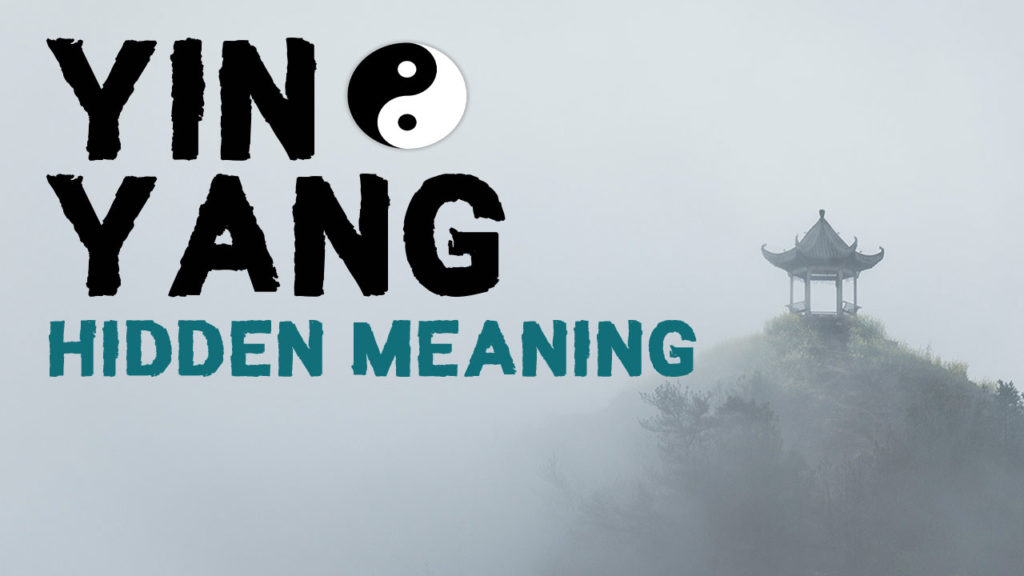
In chapter 28 of the Tao Te Ching, Lao-tzu explains how the interplay of the unified opposites of yin and yang function within our consciousness. Lao-tzu explains what our psychological disposition should be to be in perfect balance between yin and yang so that we can be in harmony with the Tao. Though, this chapter is not so easy to grasp. Chapter 28 is obscure to those not familiar with Taoist philosophy. But in this episode of The Sacred Word, I will unpack each line so that you can understand the kernel of truth dwelling within the heart of this magnificent chapter. NOTE: This site directs people to Amazon and is an Amazon Associate member. As an Amazon Associate I earn from qualifying purchases. The pages on this website may contain affiliate links, which means I may receive a commission if you click a link and purchase something that I have recommended.
Will This Be Your Last Life? | End The Cycle Of Samsara
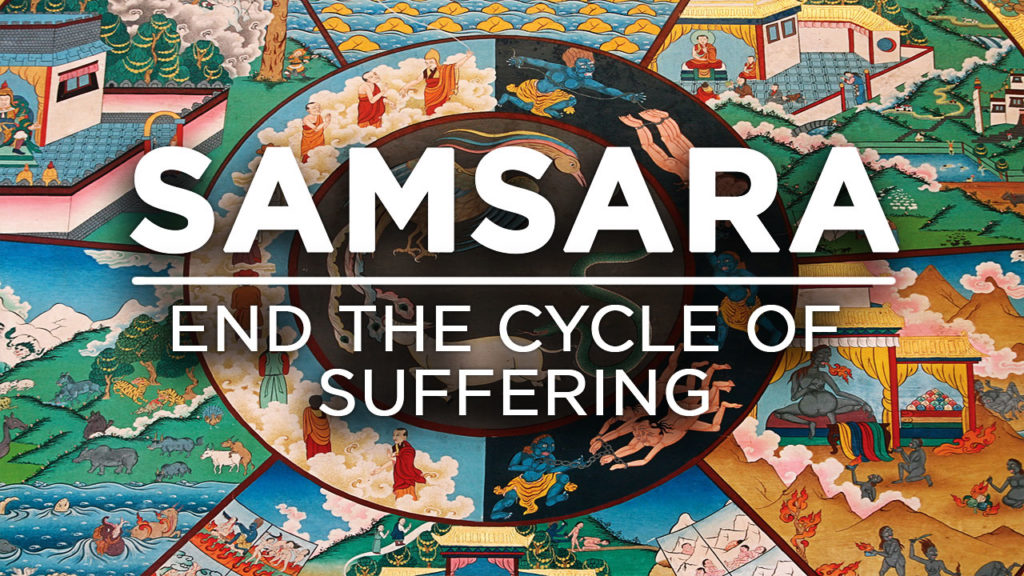
In this episode of Enlightenment Today, I will speak about our commitment to ending the cycle of Samsara. Often people want to do good deeds in their present life so that their next life will be a prosperous. People do this because they are under the belief that they are accumulating good karma. But they are missing the point altogether and are driven by the fruits of the external world. This type of attitude is still geared towards materialism and essentially prolongs the cycle of suffering. Many people are often in this trap and they wonder why their suffering is not alleviated. To end the cycle of Samsara we have to make a committed to making this our last life in our present life. Rather than doing good deeds in our present life under the vague intuition that our next life will be prosperous, we need to be serious about ending this cycle of suffering we are all caught in. You need to ask yourself, Will this be your last life? Learn more. NOTE: This site directs people to Amazon and is an Amazon Associate member. As an Amazon Associate I earn from qualifying purchases. The pages on this website may contain affiliate links, which means I may receive a commission if you click a link and purchase something that I have recommended.
Why Religious Conversion is a Problem in India and the Rest of the World
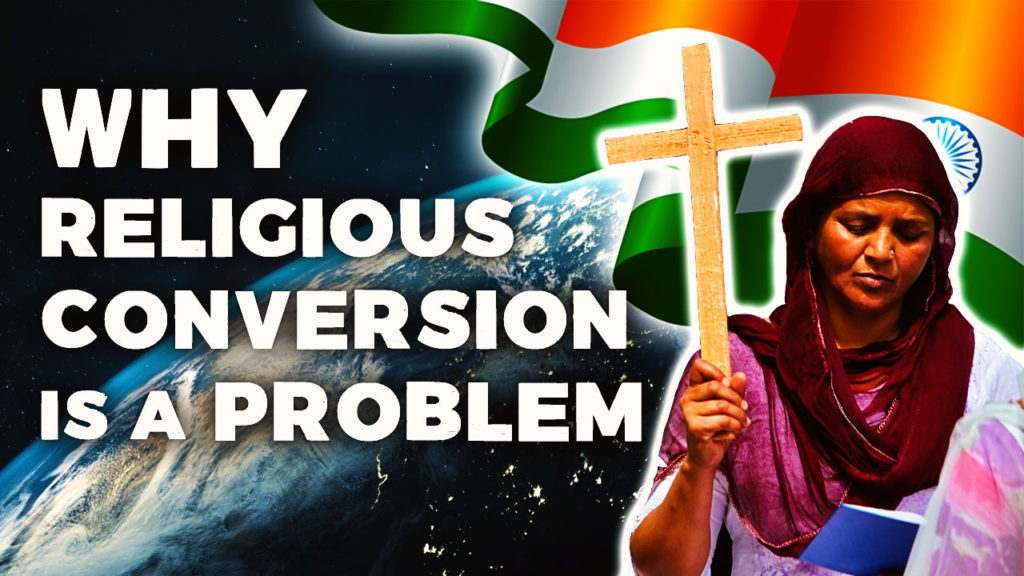
In this episode of Enlightenment Today, I will speak about why religious conversion is a problem in the world, especially in countries such as India. For thousands of years, some religions have traveled the world in an attempt to convert people from other parts of the world to bolster their religion’s influence over the world. These religious conquests have often led to conflict and violence, not to mention the psychological damage it has had on other cultures not accustomed to foreign beliefs. Religious conversion itself is a subtle act of violence because it is an instrument used to interfere with other cultures. So why has religious conversion never been questioned openly? Why do some religions feel inadequate and so need to gain followers? Why are some religions under the illusion that their belief system is better than any other? All of this is due to a persistent psychological problem that is linked to survival and, hence, not very spiritual at all. Ultimately, this is a history of fanatical force over the natural way of the world. NOTE: This site directs people to Amazon and is an Amazon Associate member. As an Amazon Associate I earn from qualifying purchases. The pages on this website may contain affiliate links, which means I may receive a commission if you click a link and purchase something that I have recommended.
The Law of Karma: Is it Governed by Morality or Nature?
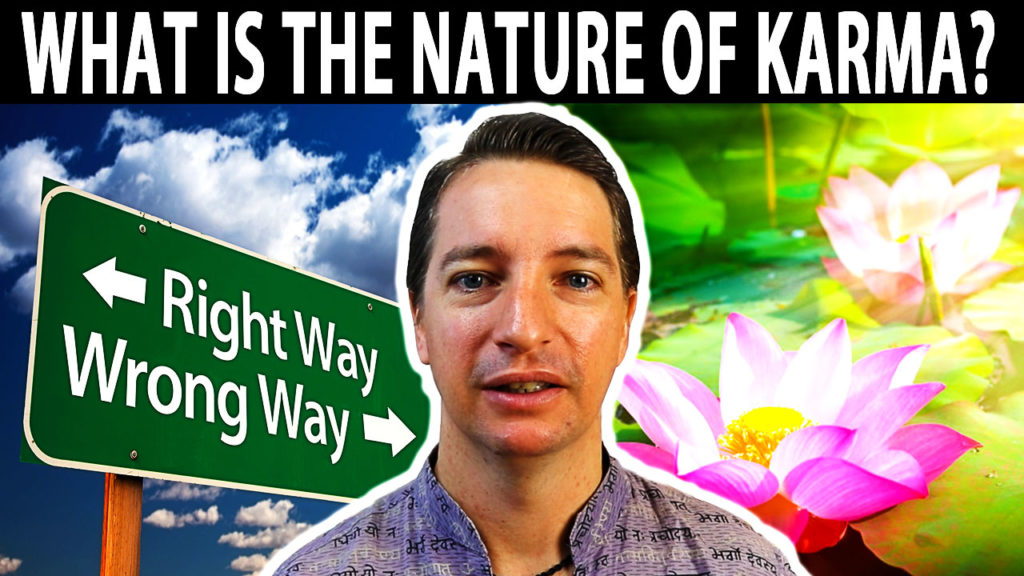
In this episode of Enlightenment Today, I will speak about why the law of karma is governed by nature rather than morality. There is a common misconception that the law of karma is based on the ethics and morality of a system of religion and culture, leading people into the illusion of good and bad karma according to their own belief systems. This is plain illogical and against the nature of karma. Karma is something entirely different from a subjective viewpoint of right and wrong. What is the nature of karma? NOTE: This site directs people to Amazon and is an Amazon Associate member. As an Amazon Associate I earn from qualifying purchases. The pages on this website may contain affiliate links, which means I may receive a commission if you click a link and purchase something that I have recommended.
My Top 5 Books of 2019
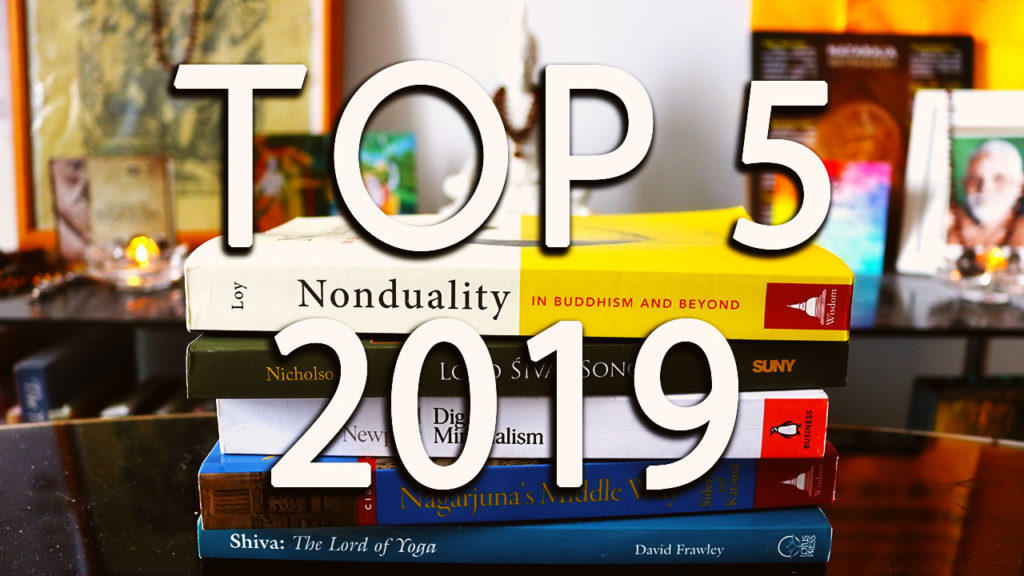
My Top 5 Books of 2019 So it’s that time of the year people, my top five books of the year. In 2019 I reverted back to some of the classics in Eastern philosophy and many other books I had put on the back-burner for a few years. Nevertheless, I finally got around to reading some important books this year that I probably should have many years ago. But the wait was worth it. A few of the books I read this year are high on my list as the best books I’ve ever read. Below are my top five books for 2019. I feel that you will benefit a lot from my list this year. Also leave a comment below and tell me the books you’ve read this year, maybe there is a book you would like to recommend. Or maybe you read one of my books? Below is my top five: Nonduality: In Buddhism and BeyondBy David R. Loy David R. Loy has produced an epic tome of nonduality within the great Eastern spiritual traditions. Nonduality is the best book I’ve read in the last five years. It is scholarly, mind-blowing, and enlightening. Some may say that might be due to my focus on nonduality in my work. But I can say with confidence that even if I was new to the subject, this book would give me a thorough understanding on the subject and transform my life. But I am not saying that it is for a beginner, it is an important book for anyone no matter how familiar they are with Eastern philosophy and nonduality. The book itself is a gem and goes further than any other book before it. Loy explores the great nondual traditions, especially Advaita Vedanta, Buddhism, and Taoism, as well as the dualistic schools of Samkhya and Yoga. He thoroughly analyzes these traditions so that the reader can better understand the differing philosophical views on the subject-object relation at the core of these Eastern schools. On top of this, Loy explores the nature of nonduality itself and why we are accustomed to thinking dualistically. He tackles this through delving into the nature of nondual perception, nondual action, and nondual thinking. He makes a great argument that our perception is naturally nondual, and after you understand how nondual perception, action, and thinking operate, then you may too. But this book goes above and beyond to explain nonduality as our natural function of mind. The cognitive error of seeing yourself as independent and separate from the world will begin to dissolve when you explore the nature of nonduality within the great Eastern traditions. This book is where you will begin your journey and also the destination you’ll arrive at, as is ironically the case with the nondual nature of life. Lord Siva’s Song: The Isvara GitaBy Andrew J. Nicholson The Isvara Gita is not only one of the most important texts for followers of Shaivism and Advaita Vedanta, but it is one of the important spiritual texts period. I have heard that it rivals the famous Bhagavad Gita. I was skeptical, but pleasantly surprised. Actually, I’d go so far to say that you could make an argument that it is even better than the Bhagavad Gita, considering its constant focus on the knowledge of Brahman without too much deviation. Some may say it is sacrilege to compare either text, especially since the Isvara Gita is a later text that shares many concepts and themes with the Bhagavad Gita. But the Isvara Gita expands on many philosophical ideas that were merely hinted at in the Bhagavad Gita (the concept of Maya being one example). Some of these more difficult philosophical ideas in the Bhagavad Gita are at the forefront in the Isvara Gita because the text teaches that renunciation accompanied by yoga is the highest way to Brahman (Shiva as the representation of the absolute Brahman). The Isvara Gita, then, is for Brahmin renouncers and those interested in metaphysics, while the Bhagavad Gita is for householders and worldly people (though we could argue that with sincere dedication both paths may end up at the same knowledge of Brahman). Andrew J. Nicholson explores this in far more depth in his introduction. Actually, his introduction is worth the price of the book alone. It is one of the most scholarly and insightfully wise contemplations on the differences between differing Hindu texts, spiritual practices such as yoga, and philosophical concepts. In my opinion, Nicholson is one of the foremost scholars on Hinduism in our modern world. I regard his scholarship as equal to great scholars of the past, such as Georg Feuerstein. On top of his introduction, his translation of the Isvara Gita brings out the essence of this great text like no other before him. His translation makes it a joy to read, but also makes it more clear for everyone to come near to an understanding of this great text, where one arrives at the real knowledge of Brahman. I have many favorite ancient texts, but the Isvara Gita is now in the upper echelon of great texts. So much so, that if anyone asked me which texts they should take on a long-term spiritual retreat, I’d say without hesitation the Isvara Gita. Digital Minimalism: Choosing a Focused Life in a Noisy WorldBy Cal Newport I always enjoy reading Cal Newport’s work, and this book is no different. Just like Jaron Lanier, he has contributed to a growing number of titles that are revealing the pitfalls of the digital world and how it is negatively impacting the human mind. It was important for myself to read this book because of one of my future titles that goes deep into the damage digital technology and social media are having on our psychology, leading many to a form of insanity that is not recognized in the world. I learned a lot from Cal’s book and
Why We Shouldn’t Use the Word God
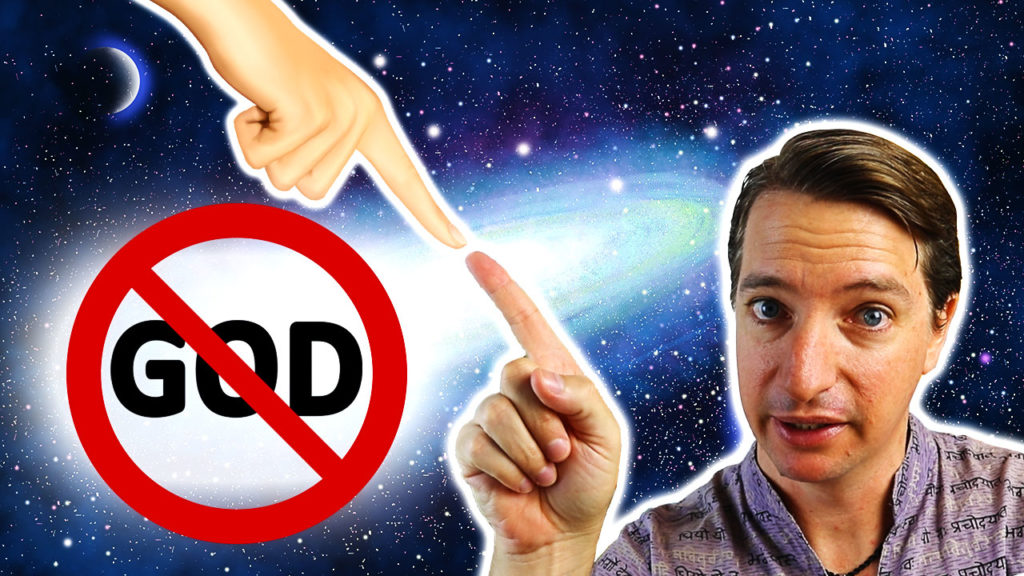
In this episode of Enlightenment Today, I will discuss whether God is an adequate word when referring to the irreducible essence of the universe. In the great Eastern traditions, there are many words that describe the true nature of the universe a lot better than the word God. This stems from the context in which God is thought of in some influential Western religions. But, from an Eastern perspective, this Western view of God is foreign. In the end, is God the right word or not? If not, then what words should we use? NOTE: This site directs people to Amazon and is an Amazon Associate member. As an Amazon Associate I earn from qualifying purchases. The pages on this website may contain affiliate links, which means I may receive a commission if you click a link and purchase something that I have recommended.
I Meditated Every Day For 10 Years & This Is What Happened To Me
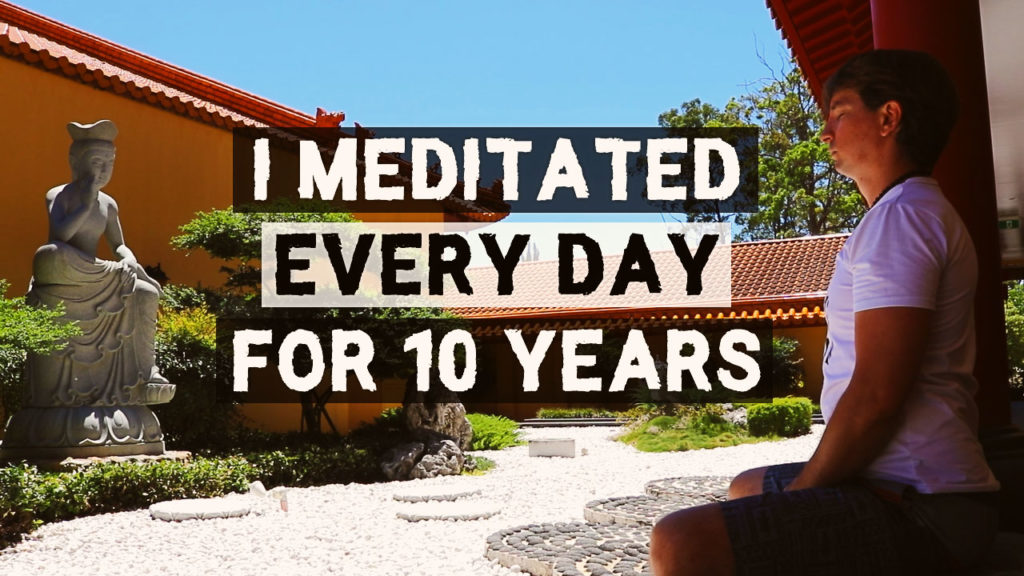
I have been meditating every day for over 10 years. Meditation has changed my life more than anything else. This commitment I made to myself over 10 years ago is the main reason I have done what I have in my life thus far. Grounding myself in that daily practice has strengthened my resolve in the work that I do. But there has been times when I’ve dragged myself out of bed kicking and screaming in trying to avoid my daily practice, but they are usually the most opportune moments to sit and dive deep. I have learned so much that it is hard to articulate. However, in this episode of Enlightenment Today, I will try to articulate my experience and share with you the changes that will happen to your mind and also the 18 ways that meditation will transform and improve not only your own life, but also the immediate world around you. NOTE: This site directs people to Amazon and is an Amazon Associate member. As an Amazon Associate I earn from qualifying purchases. The pages on this website may contain affiliate links, which means I may receive a commission if you click a link and purchase something that I have recommended.

